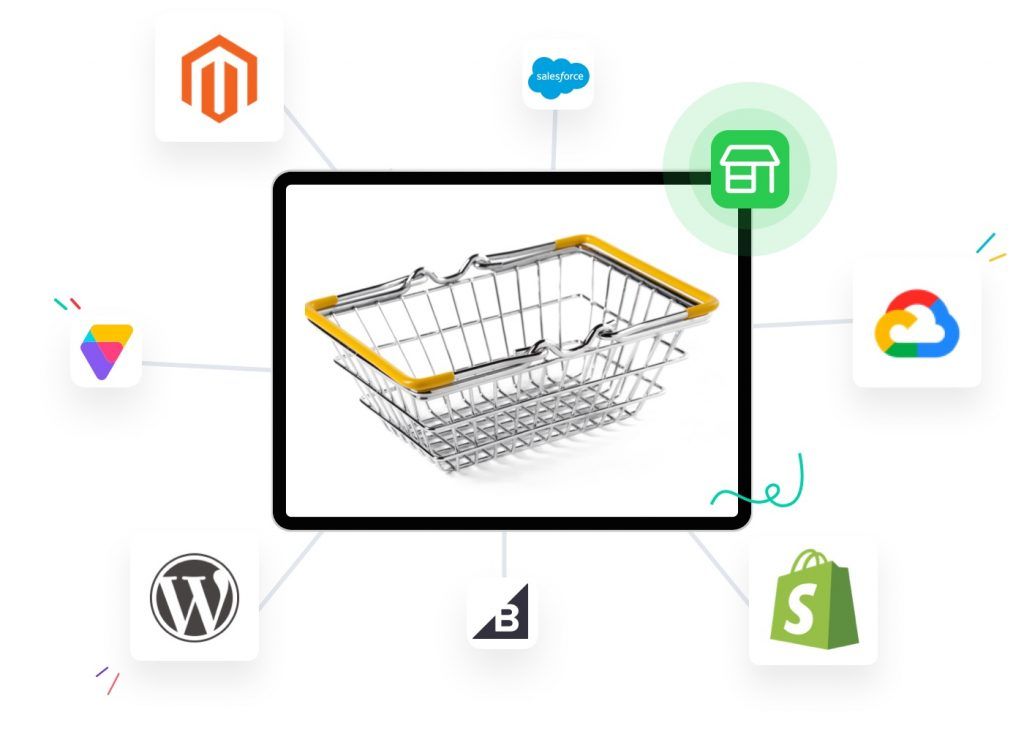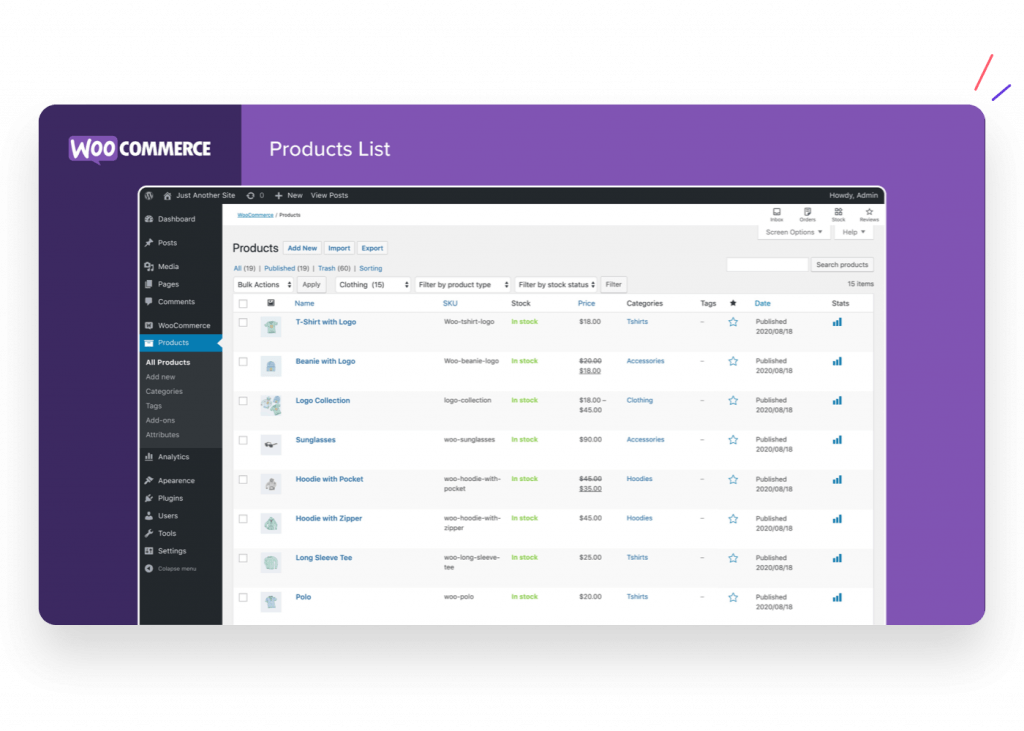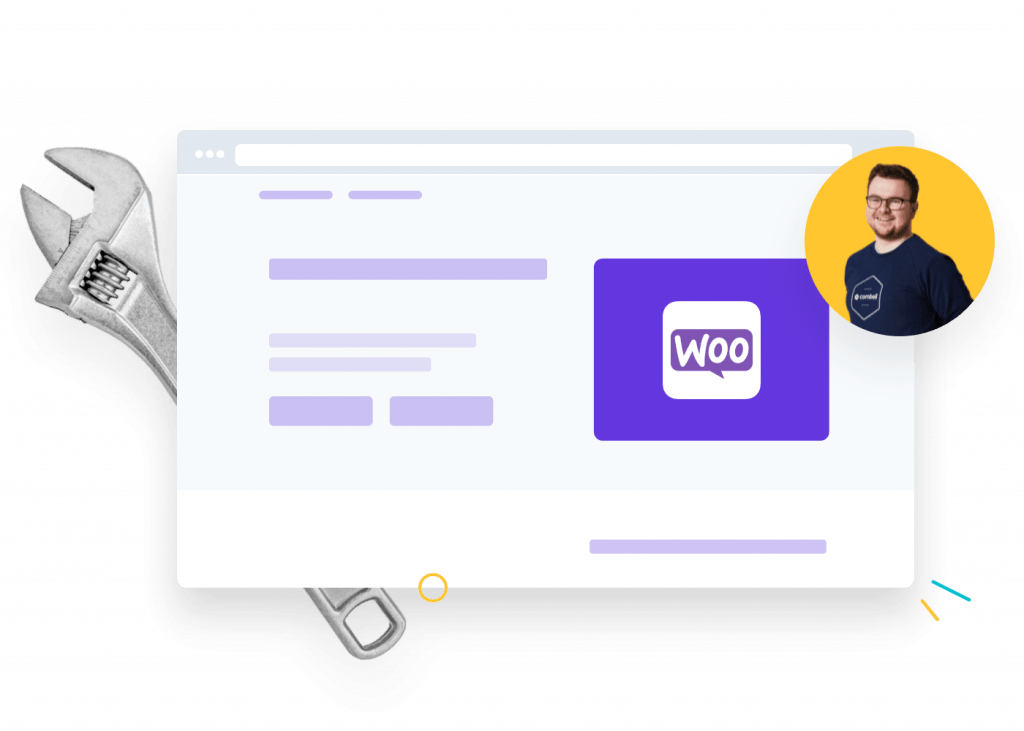WooCommerce vs Shopify: We make the comparison!

Are you starting your own online store? Then you'll need a professional platform to run your shop on. This is called a Content Management System (CMS). WooCommerce and Shopify are two popular CMS options. But which one is best for your project?
"We love webshops"
Owning your own store in the city center is a big dream for many. However, an online shop has a lot to offer, sometimes even more than a physical store.
A webshop can serve as an additional or full-fledged sales channel.E-commerce will never disappear; it will only continue to grow. This is logical considering the convenience that webshops offer to customers.
Ordering whenever you want, from the comfort of your couch, delivered to your home, with plenty of choices available - all with just a few clicks.
Importance of a good e-commerce platform
To launch the best possible webshop and ensure that your customers enjoy the most pleasant shopping experience, you need an e-commerce platform. You might also hear it referred to as webshop software.
Whatever term you use, the key is to utilize a Content Management System (CMS).
A CMS is essential for the day-to-day operation of your webshop behind the scenes. It allows you to list products online, receive payments, process orders, activate promotional codes, and more.
A good and professional CMS is designed to be highly user-friendly, tailored specifically for beginners. You hardly need any technical knowledge to get started with it.

Choosing your own e-commerce platform
It's all well and good to talk about Content Management Systems, but which one should you choose? There are various tools out there, each with its own pros and cons.
Some are limited in functionality, while others are overly complex. Some require more technical knowledge than others. Of course, cost is also an important factor to consider. Comparison is the key.
When you start researching, you'll quickly come across well-known platforms such as Prestashop, Magento, Shopify, WooCommerce, and others. Among these, Shopify and WooCommerce stand out as two of the most popular platforms. So, it's worth comparing Shopify and WooCommerce head-to-head. Short on time? We've done the comparison for you. 😉

This is Shopify
Shopify was designed back in 2004 by two developers who were dissatisfied with existing e-commerce platforms. As a result, Shopify was built from the ground up with e-commerce in mind.
Shopify is particularly useful when working with a large number of products. In terms of capabilities, Shopify is relatively limited, or you could say it's straightforward, and it focuses on selling simple standard and shipping products.
Did you know...
Developers can create apps for Shopify and sell them in the Shopify App Store? This is possible because the platform runs on the Open Source web app framework Ruby on Rails, which has had an API platform and an App Store since 2009.
Discover the possibilities of Shopify
➡️ Procedure and templates
Like other e-commerce platforms, Shopify operates with pre-designed templates, each with its corresponding themes. You can choose from 7 free templates and over 60 premium (paid) templates. Note: some of these paid themes can sometimes cost hundreds of dollars.
With Shopify, you can not only personalize these templates with your own text and images but also customize the HTML and CSS code.
For this, Shopify utilizes a templating language called Liquid. Of course, this is only beneficial if you're technically inclined.
If you want a fully customized Shopify webshop, you can rely on Shopify Experts, an online guide featuring e-commerce designers, developers, marketers, and other professionals who can assist you in developing your online store.
➡️ Pros and cons of Shopify
Pros:
Cons:

This is WooCommerce
The WooCommerce plugin, born in 2011, is an official WordPress plugin and seamlessly integrates with WordPress. WooCommerce is developed by Automattic, the company behind WordPress.
It's actually the number one e-commerce plugin for WordPress websites, with users all over the world.
With the WooCommerce plugin, you can add an e-commerce function to your website while using WordPress to create that website in a straightforward manner.
Did you know...
Unlike Shopify, WooCommerce doesn't charge a commission per transaction? WooCommerce is essentially free, although you will need hosting, of course.
➡️ Procedure and templates
Since WordPress is an Open Source platform, you can install this CMS with any hosting provider or even move it later if needed.
We recommend WordPress hosting with Combell: you can choose whether to install the WordPress CMS yourself with just one click or have Combell do it for you so you can use it right away.
Here, too, you start with choosing a theme. You can choose from thousands of themes in various categories. With the right theme, you can make your shop mobile-friendly. Then, you add extensions for payments, shipping, subscriptions, and more.
"That's not possible" doesn't apply to WooCommerce. 😁 Thanks to other plugins and extensions, you get many additional features. There's even thought given to Search Engine Optimization (SEO).
Search engine optimization is crucial for your online visibility. Most customers find their way to online stores through search engines.
Thanks to the enthusiastic WordPress community, many of these tools are free. This allows you to fully customize your online store. The more you delve into it, the better the user experience for your customers.
Tip
Explore the full range of WooCommerce plugins.
Then it's time to populate your store with texts and products. What's extra handy with WooCommerce is that you can integrate your store with other marketplaces like Amazon and eBay, thus quickly expanding your customer base.
➡️ Pros and cons of WooCommerce
Pros:
Cons:
Tip
You can use the AI Site Assistant from WordPress. This assistant helps you set up your WooCommerce webshop. Clearly state your needs, and the Site Assistant's AI will create your webshop. Suddenly, that technical knowledge isn't so essential anymore.

Also read
WooCommerce vs Shopify: the biggest difference
We'll discuss the biggest difference between WooCommerce and Shopify separately because it's a crucial distinction that requires careful consideration. WooCommerce and Shopify are different types of CMS platforms.
WooCommerce is not only cheaper, but it also provides you with much more freedom, expansion possibilities, features, and design options.
This is because WooCommerce is a WordPress plugin, essentially an extension package, for WordPress. WordPress is known for its abundance of plugins. With the extensive selection of add-ons for WooCommerce, you can easily add extra functionalities to your webshop.
Minor downside
The many possibilities of WooCommerce come with a minor downside. You need to put in some work to launch your WooCommerce webshop. Get to work on your digital store! 😉
For instance, you'll need to arrange for a WordPress website and hosting yourself. However, you can handle all of that by opting for smart WordPress hosting from Combell. Therefore, think carefully about where you get your hosting. A professional provider can alleviate many technical difficulties, such as security.
Also read
Magento or WooCommerce are examples of CMS hosting. This is Open Source software that you need to install on web hosting. Here, too, you can customize your webshop to your liking with themes and widgets. However, the CMS is completely independent of your hosting: if you decide to switch to a different host one day, you simply pick up your CMS and reinstall it on another server.
Additionally, let's not exaggerate: WooCommerce and WordPress are user-friendly. If they weren't, there wouldn't be millions of websites and webshops running on this type of CMS.
You can also rely on handy guides and tutorials online:
Buying everything upfront
Shopify takes a different approach. It's a kind of all-in-one e-commerce solution. This approach can best be compared to the smart and relatively inexpensive SiteBuilder from Combell.
The CMS of Shopify is like a shop builder, where you essentially rent a furnished web store and customize it to your liking. You leave the technical aspects (hosting, software, etc.) entirely in the hands of Shopify.
As a result, you can get started relatively quickly. The downside is that you can't move your web store to another hosting company.
Because you're buying everything upfront, your freedoms and consequently, the expansion possibilities are somewhat limited. With a shop builder like Shopify, the principle of "you get what you pay for" applies.
A complete solution comes with a hefty price tag. Whereas with WooCommerce, you determine how expensive and 'premium' you want your webshop to be.

Have you heard of Managed WooCommerce yet?
Working with an Open Source CMS gives you more freedom than a shop builder, but it also requires much more work on your part: regularly updating themes and widgets, performing security updates, and so on...
Fortunately, Combell has come up with a solution for this: Managed WooCommerce. With Managed WooCommerce, Combell takes care of the technical side of the CMS for you, so you can focus on what really matters to you: serving your customers in your online store without worries!
Here's what you can expect from Managed WooCommerce:
- The best WordPress hosting.
- AI that creates your webshop for you. (Discover it now!)
- Automatic updates of WordPress, WooCommerce, plugins, and themes.
- Test environments to try out new features.
- Restoring backups via your control panel.
- Faster loading times thanks to Boost (powered by Litespeed).
- Free plugins: All in one SEO, Abandoned cart, PDF invoices ...
WooCommerce vs Shopify: Payment Options
Another aspect worth highlighting separately is the payment options offered by each platform. WooCommerce and Shopify differ not so much in terms of the available options but rather in terms of acquisition costs.
WooCommerce offers all the major payment gateways, including Stripe, PayPal, and Square. However, for some payment options, you may need to purchase an additional WooCommerce extension.
Transaction Fees
Shopify has its own payment gateway, Shopify Payments. If you use this tool, you won't incur any transaction fees. However, if you prefer external payment options, you will face additional costs, which is the commission we mentioned earlier.
The amount you'll pay depends on your Shopify subscription level. You can choose from Basic Shopify, Shopify, and Advanced Shopify.
WooCommerce also has its own payment gateway. With this, you won't incur any costs for using external gateways. You only need to consider transaction fees charged by your bank and/or the payment platform itself.
WooCommerce vs Shopify: Which One Should You Choose?
Shopify and WooCommerce are clearly competitive with each other. They are both popular platforms, so they keep an eye on each other. By competing with each other, they make each other stronger.
As a customer, you can only benefit from this. It's now up to you to clarify your wishes and needs. If you want to get started quickly and aren't too demanding in terms of expansion possibilities and adaptability, you'll probably opt for Shopify, although it can be costly.
If you want more flexibility and to launch the best version of your webshop, if technical aspects don't scare you, or if you prefer to work with a hosting company like Combell, then WooCommerce is your choice. Plus, you can cut costs in various areas and won't pay any commission per sale.
The choice is yours! Check out our options for creating a webshop.


